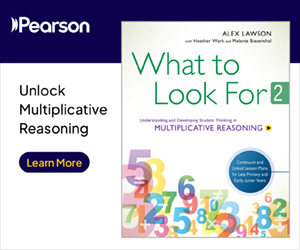This week, nearly 5,000 graduates will cross the stage at Durham College's (DC) Spring Convocation to receive their credential and be career-ready in their chosen field.
Among them will be the very first graduating cohorts in three programs - Honours Bachelor of Artificial Intelligence , Clinical Bioinformatics and Recreation Therapy - who are well equipped to meet demand in critical industries.
"At Durham College, our role is to align the skills our students develop with the evolving needs of today's employers," said Dr. Jean Choi, Vice President, Academic and Students. "Through real-world learning opportunities and strong industry partnerships, our graduates are prepared to make an immediate impact driving innovation, filling critical labour gaps, and contributing to the long-term growth and prosperity of our community."
Here's how these newest DC programs are preparing students with the knowledge and skills employers and industries need.
Artificial Intelligence honours degree
DC broke new ground with this ambitious four-year program, Ontario's first Honours Bachelor degree in artificial intelligence (AI). It was designed with a dynamic and industry-responsive structure, and has swiftly adapted to rapid advancements in the field. Regular consultations with industry partners ensure students are trained in cutting-edge technologies and real-world applications.
"Four years ago, AI was starting to become a big thing. Now it's basically the biggest thing available," noted Program Coordinator Mohammad Shamas. "The challenge was to keep the courses as up to date as possible because there's always something new."
DC faculty embraced the challenge of working in such a fast-evolving field, integrating the latest developments in AI to ensure students received a foundational and current education.
The students had to be just as nimble.
"It's exciting and humbling to know that we're setting a foundation for future students. I feel a strong sense of pride and responsibility, knowing that we have contributed to shaping the direction and standards of this pioneering program," said one graduate, Rhichard Koh.
His classmate Mohsin Mohammed will also cross the Convocation stage, and he's ready to take what he's learned into the job market.
"I'm glad I took my first step towards acquiring this degree, because I feel confident in my ability to use AI and understand how it works under the hood."
Clinical Bioinformatics graduate certificate
By training students to turn vast amounts of biological data into actionable clinical insights, this program supports a critical need in modern healthcare.
It's a need that Faculty Member Gobi Thillainadesan sees firsthand in his role as a research associate at Sunnybrook Hospital.
"There's a serious lack of talent in this area to move things forward, so the more hands the better," he said.
The fully online program is aimed at working professionals, particularly those already near or within the health and life sciences fields, aiming to upskill them with specialized training.
"It's a fantastic stepping stone for them to move into this field."
In addition to the convenience of remote learning, the program also prioritizes practical experience. Students are encouraged to complete a field placement where they work directly with scientists in labs and hospitals. For those unable to arrange in-person placements, a simulated lab experience provides an interactive, project-based learning environment.
The first graduating class is now ready to receive their credentials, and Thillainadesan is proud of the progress they've made.
"I am a clinical biometrician myself. I can confidently tell you that we have trained these students to a point where they're capable of coming into a clinical environment and doing the work themselves," he said.
This program was developed in direct response to industry needs that became especially visible during the pandemic. It's ideal for students who want a career that blends healthcare with creativity, compassion, and connection.
Unlike traditional healthcare roles, recreation therapists are often seen as the "fun ones," but the work they do is deeply grounded in assessment, planning, implementation, and evaluation. It's a comprehensive, evidence-based practice that makes a measurable difference in rehabilitation and quality of life.
"It's a rewarding career," explained Program Coordinator Erica Arbour, a seasoned educator with a strong background in long-term care and active living programs. "You're working with people of all ages and all abilities, and developing meaningful opportunities for people to improve their quality of life through recreation, leisure and play."
The two-year diploma has proven to be both popular and successful, with some students being hired directly from their field placements. They have been particularly beneficial to retirement living and long-term care homes, which are in urgent need of qualified professionals, according to Arbour.
For one student, Melanie Lai, it was the program's focus on evidence-based practices, person-centered care, and professional development that made all the difference.
"I always knew that I wanted to help people, I just never knew how," she said. "This program taught me the skills and confidence that I needed to turn my passion for helping others into a meaningful and creative career. I finally feel like I'm right where I'm supposed to be."













